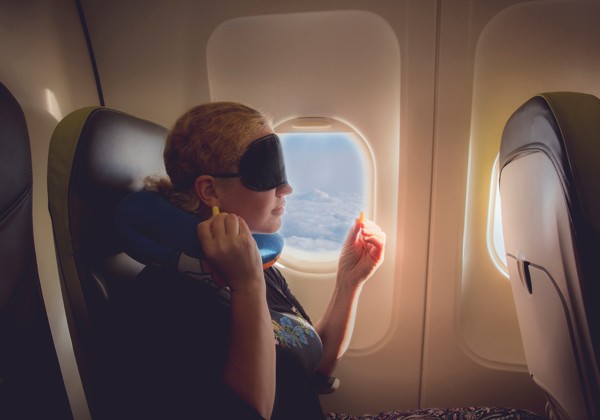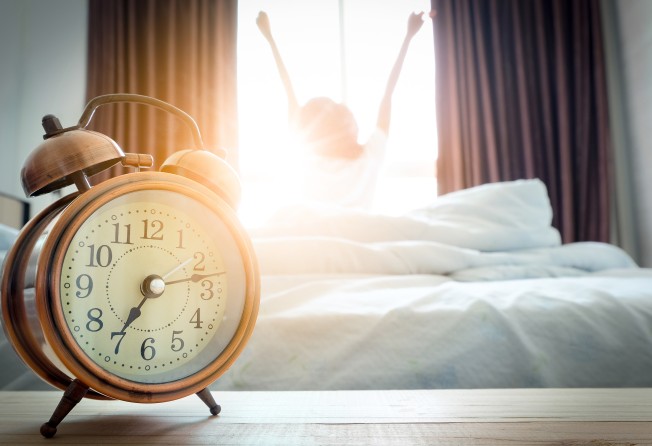
How to avoid jet lag – or at least make it a less debilitating part of your travel
- Medical experts and seasoned travellers weigh in on the top tips to avoid being a zombie when you arrive

Travel is fun and all, but jet lag can put a real damper on your holiday – and can leave you in a mental haze that can lead to agonising disruptions when you get home.
What’s the answer? Top of the list is heavy hydration and quickly adopting the meal times and sleep patterns of your destination.
Here are some top tips from medical professionals and avid long-distance travellers.
1. Before you get there ...
“Rule No. 1: Stay on local time,” said Dr Robert Winters of Santa Monica, who deals with long-distance travellers as medical director of Westside Travel and Immunisations Inc. “[Experts] say to minimise alcohol, but one drink can help you relax.

Instead of watching movies or reading on planes, Winters favours sleeping, particularly on overnight flights. “I might take an Ambien or melatonin. I don’t do both.”
Winters recommended 3 to 5 milligrams of melatonin, an over-the-counter supplement that triggers sleep.
2. Help your body clock
When it comes to waking up, sleep experts at the Mayo Clinic recommend light therapy – either natural sunlight or a lamp – when you’re travelling east. Conversely, experts there urge westbound travellers to draw the blinds in a time zone where the sun is staying up longer than you are accustomed.
Body clocks are tricky timepieces, and tough to reset quickly, experts said. During jet lag, cells in two parts of the brain fall out of sync. The health journal Medical News Today said the older the traveller, the worse the symptoms and the longer it takes to recover.
Among veteran travellers, conventional wisdom is that every time zone crossed requires a day of recovery. So a nine-hour time change on a trip from Rome would require nine days to rebound once you return home.
The issue is significant enough that aircraft makers are adjusting cabin pressures to help offset symptoms. For instance, Boeing’s 787 is now pressurised at 6,000 feet, 2,000 feet lower than most other aircraft. Altitude chamber tests show that the body absorbs more oxygen into the blood this way, and passengers experience fewer headaches and less fatigue.
Prevention is better than a cure
Although there is no sure cure for jet lag, prevention can make a difference in the severity of symptoms. Frequent fliers cite the benefits of lots and lots of water.
“I drink water the minute I get off the plane,” said Mary Garripoli of Los Angeles. “For the first 24 hours, just water, no iced tea, no wine. When I come home, it’s the same thing.”
“I was a flight attendant for many years,” said Patricia Dotzler, also of Los Angeles. “I found that drinking a lot of water starting three days before departure, plus during and after flights … then taking a good walk after arriving at the hotel helped a lot.”
Adjust your watch immediately
Like Winters, travel blogger Suzanne Stavert recommended adjusting to local schedules when you get to your destination.
“The absolute best way to get over jet lag is to get on local time immediately,” Stavert said. “Do not nap. Stay hydrated, and go to sleep around 9pm the first night of the trip and wake up at a normal local time. It has worked for me travelling to any time zone all over the world.”
“My dad, who worked in travel for 40 years, gave me one tip: plan to get in to your destination in the afternoon and force yourself to stay up until a relatively normal early bedtime in the country where you’re staying,” said financial journalist Kathy Kristof of La Canada Flintridge.
This article was curated by Young Post.